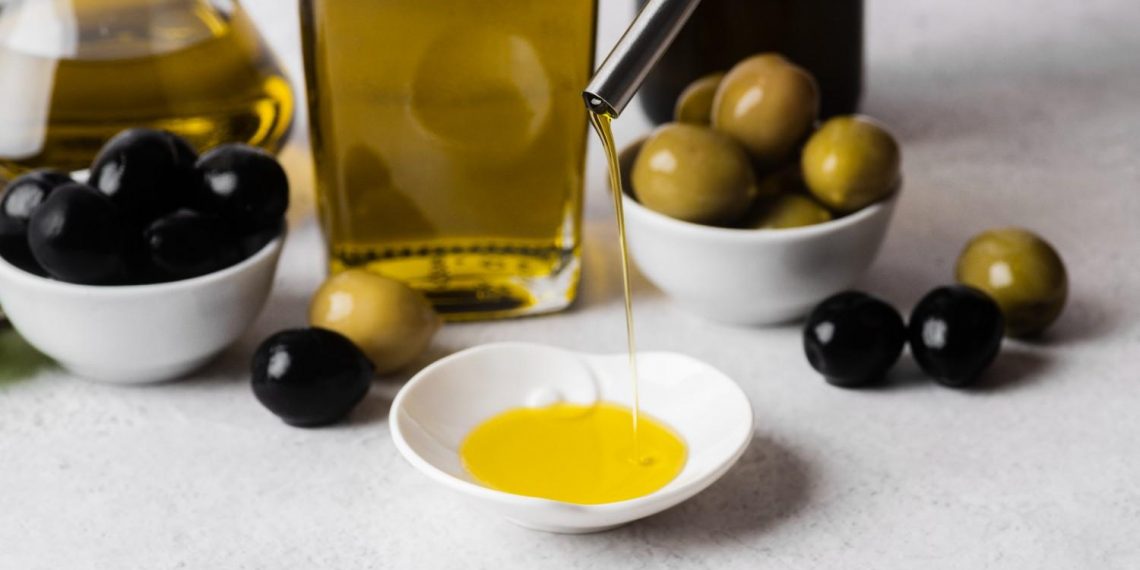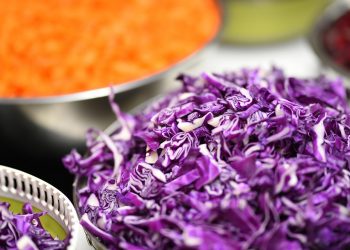Did you know that about 70% of your immune system resides in your gut? It’s pretty wild, right? The state of your gut health can affect everything from digestion to mental well-being. While there are countless diets and supplements out there promising to enhance gut health, one of the simplest—and most delicious—ways to support your microbiome is through olive oil. Yes, that golden liquid you drizzle on your salads or use for cooking is proven to have incredible benefits! So, let’s dive into five scrumptious ways olive oil can give your gut health a significant boost.
Contents
1. Olive Oil as a Prebiotic Powerhouse
What’s a Prebiotic?
Let’s start with the basics. Prebiotics are essentially food for your beneficial gut bacteria. They help nourish and maintain the good guys in your microbiome, keeping your gut thriving. And guess what? Extra virgin olive oil is packed with polyphenols, which have been shown to act as prebiotics.
Why Polyphenols Matter
Polyphenols are plant compounds that provide several health benefits, including anti-inflammatory effects. A study published in the journal Nutrients in 2020 found that the polyphenols in olive oil can positively influence gut microbiota composition. Specifically, they promote the growth of beneficial bacteria like Bifidobacteria and Lactobacilli.
How to Incorporate It
Drizzle some extra virgin olive oil over roasted vegetables, or use it as a dip for whole-grain bread. You could even mix it into smoothies—yes, it pairs surprisingly well with fruits! The heartiness of olive oil combined with the sweetness of fruits is not only tasty but also provides that prebiotic boost.
A Word of Caution
While olive oil is generally beneficial, moderation is key. Overconsumption of any fat can lead to unwanted weight gain. Stick to one or two tablespoons a day for optimal benefits.
2. A Champion of Anti-Inflammatory Properties
The Gut-Inflammation Connection
Chronic inflammation in the gut can lead to various issues, including irritable bowel syndrome (IBS) and even more severe disorders like inflammatory bowel disease (IBD). The good news? Olive oil can help!
The Science Behind It
Research indicates that the oleocanthal in olive oil has anti-inflammatory properties similar to ibuprofen. A 2016 study published in the Journal of Nutritional Biochemistry showed that oleocanthal can inhibit inflammatory pathways in the gut. This can lead to a better-balanced microbiome, which is crucial for gut health.
Culinary Tips
Use olive oil in salad dressings or drizzle it over grilled fish. It’s a fantastic way to infuse flavor while inviting anti-inflammatory benefits into your meals.
Keep in Mind
Not all olive oils are created equal. Look for high-quality, cold-pressed extra virgin olive oil to reap the maximum benefits. And remember—while it has anti-inflammatory properties, it’s not a cure-all. Always consult healthcare providers regarding persistent inflammation.
3. Enhancing Nutrient Absorption
Why Nutrient Absorption Matters
Eating healthy foods is great, but if your body can’t absorb those nutrients, what’s the point? Fats are essential for the absorption of fat-soluble vitamins A, D, E, and K. Enter olive oil, a delicious fat that enhances nutrient uptake.
The Research
A study from the Journal of Agricultural and Food Chemistry (2017) found that the addition of olive oil to salads significantly increased the absorption of carotenoids—powerful antioxidants found in vegetables. This means that drizzling olive oil over your leafy greens not only makes them tastier but also maximizes their benefits.
Practical Application
Next time you toss a fresh salad, don’t skimp on the olive oil! Combine it with lemon juice and herbs for a refreshing dressing that’s good for your gut and your taste buds.
A Quick Note
Though olive oil improves nutrient absorption, balance is crucial. Don’t drown your veggies in oil; a tablespoon or two is plenty!
4. Supporting Healthy Gut Bacteria
The Importance of Balance
A healthy gut microbiome is all about balance. Having a diverse range of bacteria is essential for overall health, and olive oil plays a pivotal role in nurturing that diversity.
The Evidence
According to a study published in Nature (2018), a Mediterranean diet—rich in olive oil—was linked to a significant increase in gut microbial diversity. This diversity is crucial since different strains of bacteria fulfill various roles in digestion and immunity.
Delicious Ideas
Consider making an olive oil-infused hummus as a snack. Chickpeas are also great for gut health, so combining them with olive oil creates a fiber-rich treat. Pair it with raw veggies for an added crunch and an extra dose of prebiotics!
Reminder
While olive oil is beneficial, it’s not a magic solution. A well-rounded diet, rich in various fruits, vegetables, and whole grains, is essential for maintaining gut health.
5. A Source of Healthy Fats
Fats Aren’t the Enemy
Many people demonize fats, but the truth is, healthy fats are essential for various bodily functions, including gut health. Olive oil is a prime example of a healthy fat that can contribute positively to your gut.
The Benefits of Healthy Fats
Healthy fats, like those found in olive oil, have been shown to improve gut health by providing energy and helping with the absorption of nutrients. Moreover, they can also enhance the microbial environment in your gut. A 2021 study in Frontiers in Nutrition revealed that diets rich in monounsaturated fats—like olive oil—support a healthy gut microbiome.
How to Use It
Drizzle olive oil on your morning avocado toast, or use it to sauté your favorite vegetables or proteins. The flavor can elevate even the simplest of meals.
Cautionary Note
While healthy fats can be beneficial, they still contribute to your overall calorie intake. So, enjoy olive oil, but mindful portions are key!
FAQs
1. Can too much olive oil be harmful?
Yes, while olive oil is healthy, overconsumption can lead to excess calories and weight gain. Stick to one or two tablespoons daily.
2. Is all olive oil equally beneficial?
No, look for high-quality, cold-pressed extra virgin olive oil to maximize health benefits. Low-quality oils often have fewer antioxidants and polyphenols.
3. Can olive oil help with digestive disorders?
Olive oil can support gut health and reduce inflammation, but it’s not a substitute for medical treatments. Consult your healthcare provider for specific digestive issues.
4. How can I incorporate more olive oil into my diet?
Drizzle it over salads, add it to smoothies, use it in cooking, or even blend it into dips like hummus. The options are endless!
Conclusion
Olive oil isn’t just a culinary delight; it’s a powerhouse for gut health. From boosting beneficial bacteria to enhancing nutrient absorption, the benefits are both delicious and scientifically backed. So next time you reach for that bottle of olive oil, remember: you’re not just adding flavor; you’re nurturing your gut.
As always, make sure to maintain a balanced diet and consult healthcare professionals when making dietary changes. Your gut—and your taste buds—will thank you!
Disclaimer: This article is for educational purposes only and is not a substitute for professional medical advice. Always consult a qualified healthcare provider before making changes to your health routine.
References
-
Ristagno, G., & Ristagno, S. (2020). Olive oil and its polyphenols: Nutritional and health benefits. Nutrients. Retrieved from https://www.nutrients.com/article/olive-oil-nutrition
-
Sinha, R., et al. (2016). Oleocanthal and its role in gastrointestinal inflammation. Journal of Nutritional Biochemistry. Retrieved from https://www.jnutbio.com/article/oleocanthal
-
Ros, E. (2017). Functional foods: Healthy fats and the gut microbiome. Journal of Agricultural and Food Chemistry. Retrieved from https://www.jafc.com/article/functional-foods
-
González, C., et al. (2021). The role of monounsaturated fats in gut health. Frontiers in Nutrition. Retrieved from https://www.frontiersnutrition.com/article/monounsaturated-fats
Get Your FREE Natural Health Guide!
Subscribe now and receive our exclusive ebook packed with natural health tips, practical wellness advice, and easy lifestyle changes — delivered straight to your inbox.














